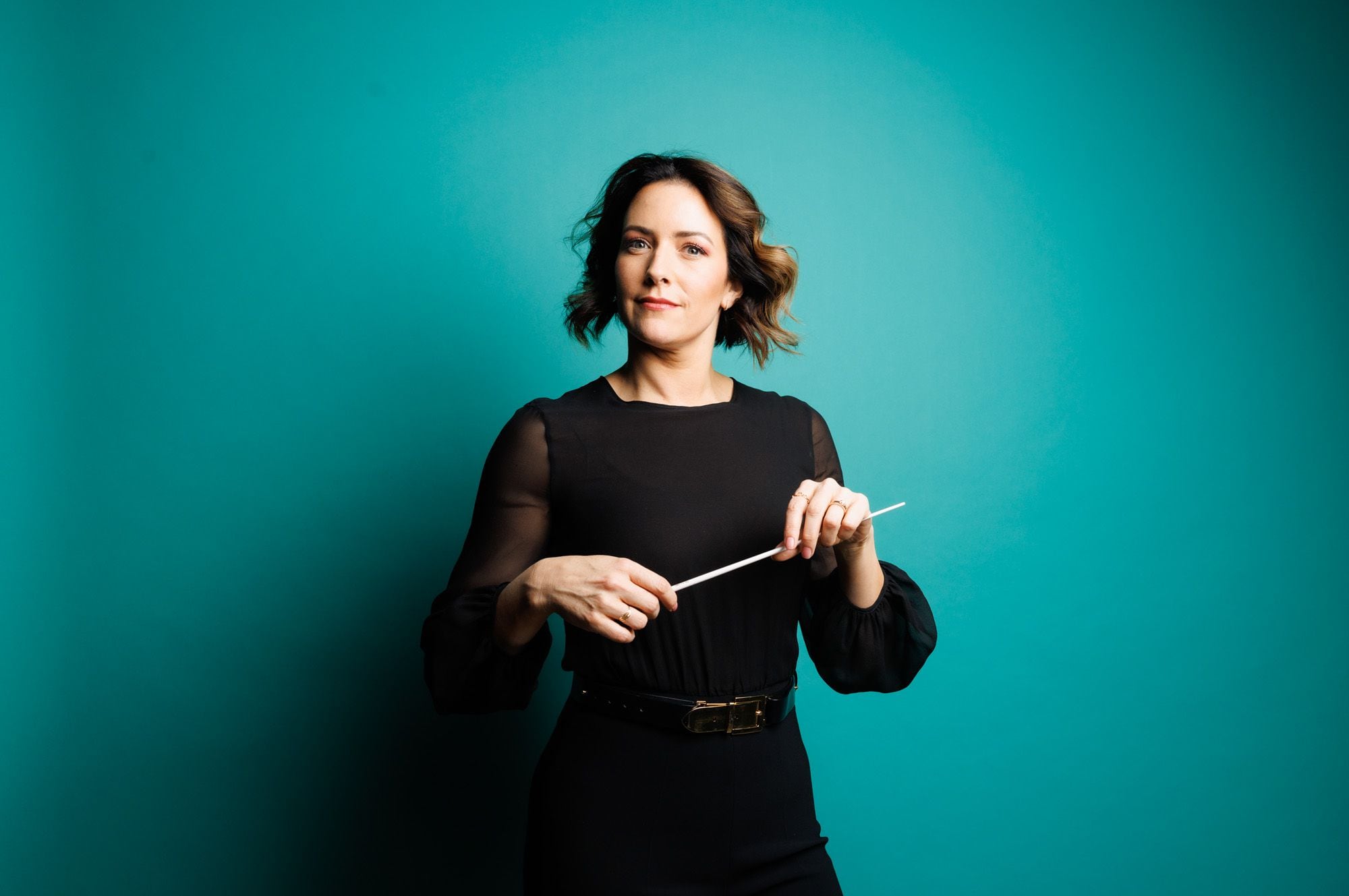Mexican conductor Alondra de la Parra presented her latest album on Tuesday afternoon, a work that “reflects on humanity’s greatest problems.” It is the album Impossibleprepared as a symphony by the Mexican composer Arturo Márquez and published by Sony. The work is inspired by current problems such as climate change and gender violence, but it is also a call to reflection on the possibility of a better world at a time when the human species seems to be submerged in the violence of war and extremism.
De la Parra presented the work as part of the Paax GNP Festival, which takes place in the Riviera Maya. She said that she recorded it together with the Orquesta Imposible, the project she developed during the weeks of confinement due to Covid-19, when large cities had to close and concerts and presentations were cancelled. The director then decided that the performance had to go on, so she called together 30 of the best musicians in the world who, spread across seven cities, recorded the work separately. Danzon, number 2the Mexican milestone of composer Márquez. That experience allowed de la Parra to raise funds—more than eight million pesos, he specifies—that he was able to invest in initiatives that promote gender equality. But it was also the seed of what is now the Paax GNP Festival, which has been held for three years at the Hotel Xcaret Arte, in the Riviera Maya.
The album presented on Tuesday is the result of the festival. De la Parra recorded it with the orchestra’s musicians and Márquez in the sessions they held during the event. The director had asked Márquez to make a composition thinking about the serious problems of humanity, but taking advantage of the luxury of having some of the best musicians in the world in one place. Márquez devised a kind of symphony divided into problems, something like a musical version of Dante’s journey to hell. “Each movement is an urgent theme,” explained the director.
The first piece on the album is inspired by climate change and begins with a string representing nature. Other musical sounds are then added, reminiscent of metals, such as axes and machinery destroying forests. “They try to dislocate that constant movement of the string. That represents the human being and his action on nature,” said the author. The second movement is about resilience and the beat is carried by the horn played by the German musician Felix Klieser, a virtuoso of the horn who was born without arms. “I was born that way, for me it was natural to develop other skills. If I didn’t have hands, I had to solve it with my feet,” the musician told this newspaper two years ago. That passion for life and for music led the director to look for him to perform the piece.
Another of the themes that the album addresses is gender equality. This movement is performed by a man and a woman who play the same instrument, but in her case she plays it two octaves higher, which according to de la Parra makes the interpretation more difficult for her, with which she wants to denounce the difficulties that women face in different areas of life. Migration is also addressed in the work, with the trumpet of the brilliant Venezuelan musician Pancho Flores, who has lived in exile after leaving his country due to the crisis in Venezuela.
One of the director’s favourite pieces in the work is the one that symbolises empathy. She explained that Márquez was inspired by two varieties of cicadas that “never come together” and reproduce at different times, one every 11 years and the other every 17. “But there is only one moment when they must reproduce together to survive and that is what this movement is about, the need to find each other, because nature is empathetic,” she explained.
Director Márquez also wanted to give a little hope in the work. That is why he has prepared a piece called Utopia, composed for trombones, with which he wants to bring together elements that could make humanity better, such as resilience, empathy, unity, the search for balance. The album closes with a nod to the beginning: with a composition that calls for stopping climate change and “fixing our planet,” explained de la Parra. The director presented the work together with the president for Mexico of Sony, Roberto López, who described the album as “a magical piece,” which “brings together in excellent conditions” the director and the musicians of the Orquesta Imposible. It is a new achievement by the woman who, as she herself has said, tries to make the most impossible dreams come true.
Sign up for the free EL PAÍS Mexico newsletter and to WhatsApp channel and receive all the latest news on current events in this country.

